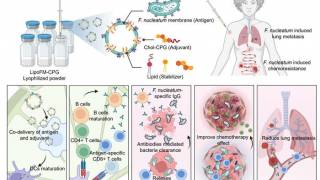Positive Phase III Study Results Announced in Advanced Prostate Cancer Patients

Novartis reported the first interpretable results of the Phase III VISION study evaluating the efficacy and safety of a targeted radioligand therapy in patients with progressive PSMA-positive metastatic castration-resistant prostate cancer (mCRPC) compared to the best standard of care alone.
The trial met both primary endpoints of overall survival and radiographic progression-free survival, helping to move closer to Novartis’s ambition of 177Lu-PSMA-617 becoming the targeted treatment for >80% of patients with advanced prostate cancer.
“These groundbreaking data confirm our belief in the potential of 177Lu-PSMA-617 to reimagine outcomes for these (prostate) patients through phenotypic precision medicine. We intend to submit these data to regulatory authorities as soon as possible,” commented John Tsai, Head of Global Drug Development and Chief Medical Officer for Novartis, in a press statement.
177Lu-PSMA-617 is an investigational PSMA-targeted radioligand therapy for metastatic castration-resistant prostate cancer. It is a type of precision cancer treatment combining a targeting compound (ligand) with a therapeutic radioisotope (a radioactive particle).
After administration into the bloodstream, 177Lu-PSMA-617 binds to prostate cancer cells that express PSMA13, a transmembrane protein, with high tumor-to-normal tissue uptake.
Once bound, emissions from the radioisotope damage tumor cells, disrupting their ability to replicate and/or triggering cell death. The radiation from the radioisotope works over very short distances to limit damage to surrounding cells.
Novartis is the only pharmaceutical company that is pursuing four different cancer treatment platforms. These include radioligand therapy, cell and gene therapy, and targeted therapy and immunotherapy, with an opportunity to combine these platforms for the best outcomes for each cancer patient.
Radioligand therapy combines a targeting compound that binds to markers expressed by tumors and a radioactive isotope, causing DNA damage that inhibits tumor growth and replication.
This therapeutic approach enables targeted radiation delivery to the tumor while limiting damage to the surrounding normal tissue. Novartis has established global expertise and specialized supply chain and manufacturing capabilities across its network of four radioligand therapy production sites and further increases capacity to ensure delivery of radioligand therapies like 177Lu-PSMA-617 to patients in need.
In castration-resistant prostate cancer, the tumor shows signs of growth, such as rising Prostate-Specific Antigen levels, despite hormone treatments that lower testosterone.
In metastatic CRPC, the tumor spreads to other parts of the body, such as neighboring organs or bones, and remains unresponsive to hormone treatment.
The five-year survival rate for patients with mCRPC is approximately 15%.
Basal-based Novartis is reimagining medicine to improve and extend people’s lives. As a leading global medicines company, we use innovative science and digital technologies to create transformative treatments in areas of great medical need.
Vax-Before-Cancer publishes research-based oncology news.
Our Trust Standards: Medical Advisory Committee
























